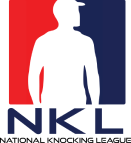All right. How to sell versus why to sell. My name’s Sam Taggart. I’m the founder of D2D experts, a sales trainer, and author of ABC$ of closing. Today, I’m gonna go into how to get your salespeople shifting their mindset to why to sell versus how to sell. So often in direct sales, we are always learning sales training. A lot of you guys probably watch my videos or read the books or the podcasts where I teach people how to sell. And the problem is, I don’t talk enough. A lot of sales trainers, a lot of sales managers don’t talk enough about why to sell their product. One of the biggest confidence boosters in sales is buying into why the, because I can take a dumb, terrible, bad sales rep with no experience and get him selling because they are just so passionate about what they’re selling.
Enthusiasm Is The Key
A lot of times we’re like, here’s the script, read the script, but if there’s no passion and energy and enthusiasm behind the script, they’re not gonna sell. No matter if they’re saying the right things, if there’s no just natural energy and excitement to close, they’re going to be at a closing table, and they’re gonna say, yeah, you probably don’t need this. They are not gonna have that extra ambition to overcome those last tiny concerns that holds the customer up from transacting and they are not going to buy. It’s so important when we’re talking about sales training to not forget about the why of the product, because that’s gonna Trump everything else you teach them. Having enthusiasm about the product is going to be more important than our little sales techniques, right? So, we have all these different one liners, closers, we have all these different little pitches, examples, hooks, and things like that to kind of create interest. But, I promise the salesman within you, if you’re excited about the product, it will go a long ways.
I’ve sold anything from Shawa to knives, to painting addresses on curbs, alarms, solar, pest control, roofs, satellite windows, I’ve knocked all sorts of different products. It’s interesting to go into a scenario where it’s a new product, a new service. I first always am going to ask, so why would you buy this? Would I use this? Why would somebody care to even keep this? Am I gonna be excited to follow up in six weeks being like, dude, do you love it? You’re happy? High five! Or, am I going to be like, I hope I never see them again. And uh, I hope that they never use it because if they use it, it’s never gonna work.
I have a couple software companies that we just get really passionate about because it’s like, Hey, we use the product. Like, we actually use this product and are excited about it. I have a company called vanilla message. It’s a texting platform and we use it for our marketing and we use it for our reviews, our follow ups, and things like that. So it’s like, we drink our own Kool-Aid. You know? I sold solar. I have solar on my house. I sold alarms. I have an alarm. I can’t stress it enough. If your people don’t know why to sell the product or the need for it, then they will never figure out how to sell. the products
Reframe Your Commission
The second piece of this that I wanna talk about is there’s a commission reframe that has to happen. So, data has shown that more people are are apt to buy, if they don’t feel like you’re just in it for the commission. So, if they feel like you’re passionate about the product and they feel like you’re not just in it for the commission, then you’re gonna have a higher buyer or a lower buying threshold. Meaning, there’s a lot less resistance. What I mean by a commission reframe, is most people, you know, when they go into a selling situation, you go to a car lot and you’re like, this guy, I know he works on commission. How do I beat him up for his commission? While I sit in front of a homeowner in a direct sales situation, I’m gonna be like, okay, who customer is like, okay, how much do you make on this? This sounds too good to be true. Like, how do I get a better deal? How do I negotiate with you?
What if you could shift it and, there’s a gray line, so don’t lie. Don’t be like, oh, I work just work to get the hours in, I don’t care if you get it or not. I’m just trying to clock my hours, clock in, clock out. Whatever you do, don’t be that guy. You are in commission. be honest about this. If you’re a 10 99 or let’s say you are commission, maybe you are salary plus commission, or whatever. I would reframe it to where I’m simply explaining my commission is in a way similar to this- Hey, I have a service where if you don’t keep this service for a full year, or eight months, or whatever, then I don’t get paid. So, if I sold you a bag of crap, you stop paying and you don’t use it, then I don’t get paid. This way you’re coming from a great position of saying yes, I get paid by commission, but switching it to like, I’m selling you a service for extreme value that I believe in enough, to know that you’ll keep it, otherwise I don’t get paid.
Those 2 Things Create Trust
These things are going to create a higher value of trust. We’ve all heard sales as a transfer of trust. You know, when you look at commissions, people never really trust like that. The other thing is it is to explain to them that, Hey, I I’ve opted into doing this, because I found that the more passion I have to help people, you know, transact, the more I found that I can serve people at the highest level, because I know everybody that gets my service or product is gonna be better off than when I found them. So, I felt like when I would just kind of go about the day, blah, blah, blah. It never really served the client. And so, by me helping you out right now, that’s going to increase the value to you. It’s also going to increase the value to me creating a win-win scenario. That’s really why I’m passionate about what we do and our service and/or product. And so, just a simple commission reframe is going to help create a level of trust so that, you know, these people empathize with you and they go, okay, yeah.
I like what I do. I’m passionate about what I do. I wish I was as passionate about what I do. That you’re as passionate about what you do, dang, like I’m jealous and
That’s what makes up a good sales rep. So it’s not necessarily how to sell, it’s why to sell. So I hope you enjoyed these videos. Uh, we have tons of content, so hit the subscribe button and uh, we’ll see you guys on the next video share this. If you’ve got some value and uh, keep watching.























